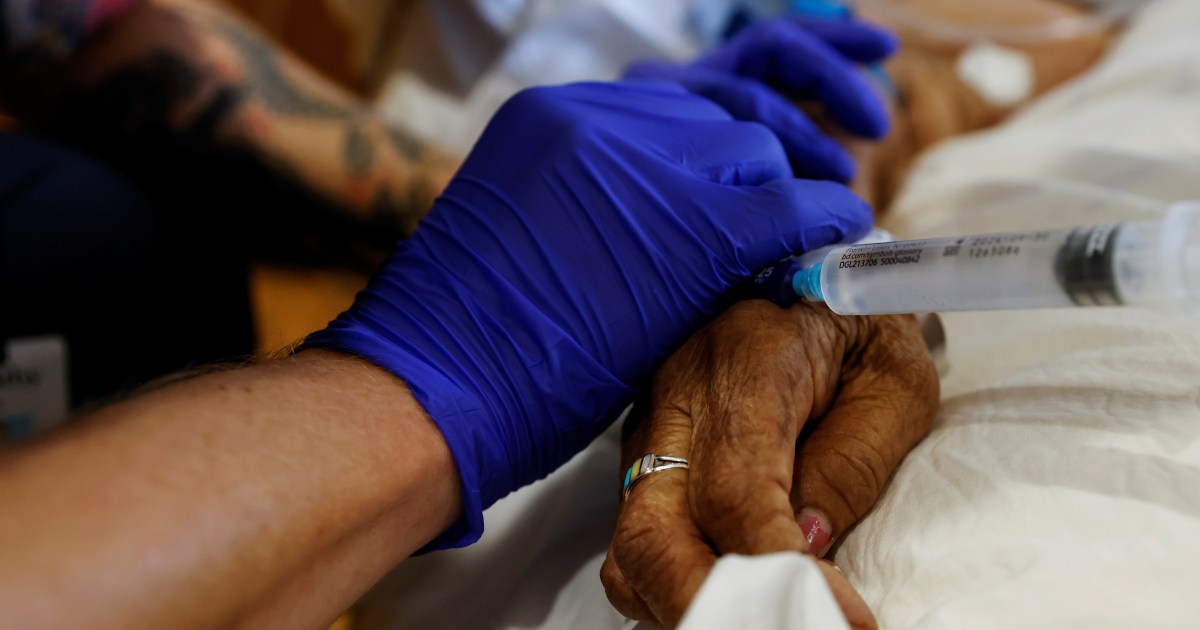The pandemic disrupted health services globally and triggered the worst economic crisis since the 1930s, the World Bank and WHO say.
More than half a billion people globally were pushed into extreme poverty last year as they paid for health costs out of their own pockets during the height of the COVID-19 pandemic, according to the World Health Organization and the World Bank.
The pandemic disrupted health services globally and triggered the worst economic crisis since the 1930s, making it even more difficult for people to pay for healthcare, a joint statement from the two organisations said on Sunday.
“All governments must immediately resume and accelerate efforts to ensure every one of their citizens can access health services without fear of the financial consequences,” WHO Director-General Tedros Adhanom Ghebreyesus said.
Tedros urged governments to increase their focus on healthcare systems and stay on course towards universal health coverage, which the WHO defines as everyone getting access to health services they need without financial hardship.
Healthcare is a significant political issue in the United States, one of the few industrialised countries that does not have universal coverage for its citizens.
Globally, the pandemic made things worse and immunisation coverage dropped for the first time in 10 years, with deaths from tuberculosis and malaria increasing.
“Within a constrained fiscal space, governments will have to make tough choices to protect and increase health budgets,” Juan Pablo Uribe, global director for health, nutrition and population at World Bank, said.
Out of the middle class
According to a Pew Research Center study published in March, the pandemic has driven 32 million Indians out of the middle class, defined as those earning $10 to $20 a day.
It estimated the crisis has increased the number of India’s poor – those with incomes of $2 or less a day – by 75 million.
Meanwhile, a new report published on Thursday by the United Nations Children’s agency (UNICEF) said that 100 million additional children were estimated to now be living in multidimensional poverty because of the pandemic, a 10-percent increase since 2019.
Henrietta Fore, the UNICEF’s executive director, said the widespread impact of COVID-19 continues to deepen, increasing poverty, entrenching inequality and threatening the rights of children.
“While the number of children who are hungry, out of school, abused, living in poverty or forced into marriage is going up, the number of children with access to health care, vaccines, sufficient food and essential services is going down. In a year in which we should be looking forward, we are going backward,” she said.
Stay connected with us on social media platform for instant update click here to join our Twitter, & Facebook
We are now on Telegram. Click here to join our channel (@TechiUpdate) and stay updated with the latest Technology headlines.
For all the latest World News Click Here

